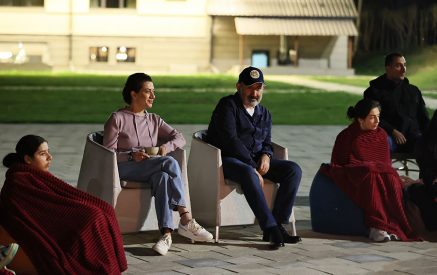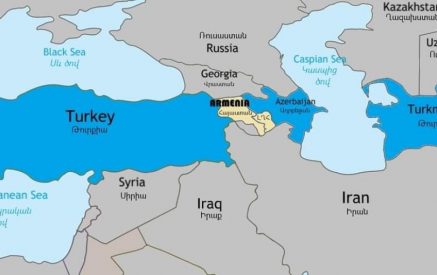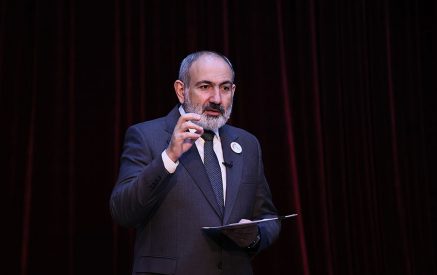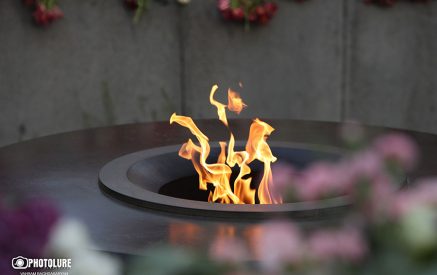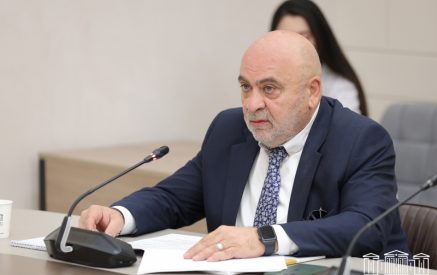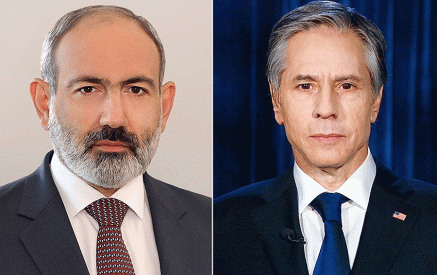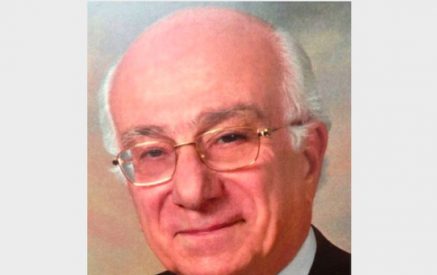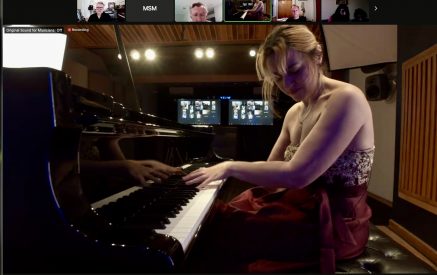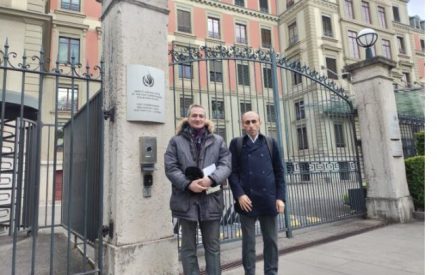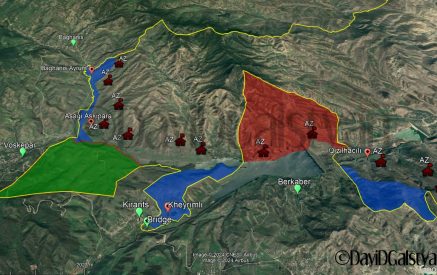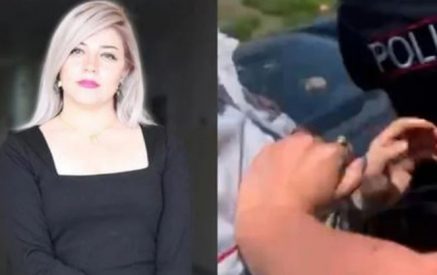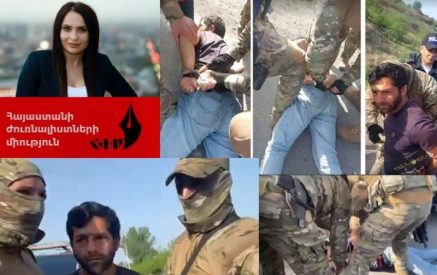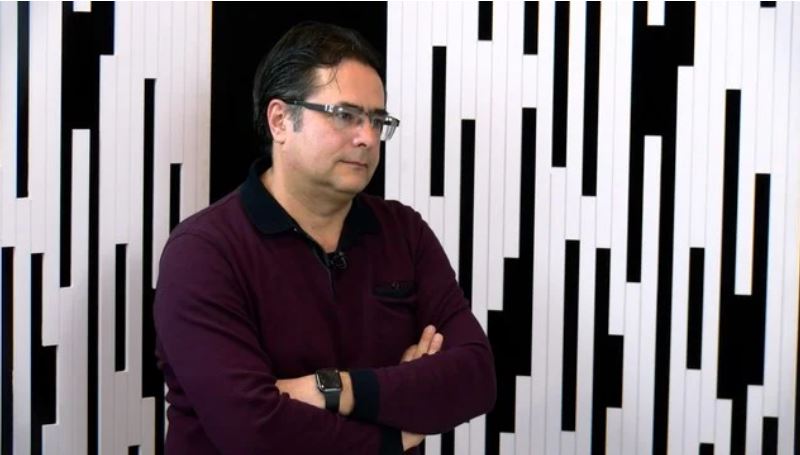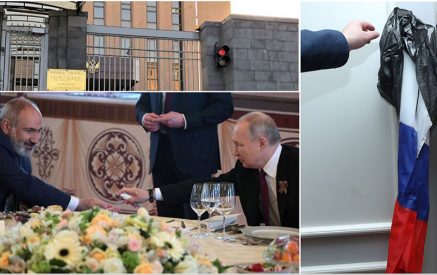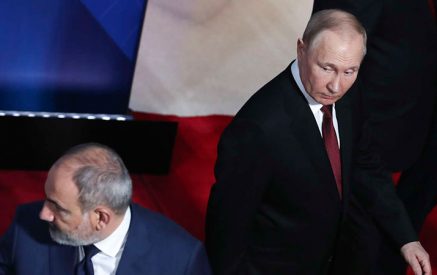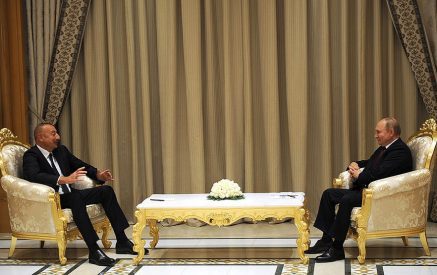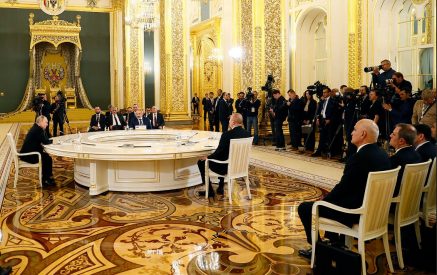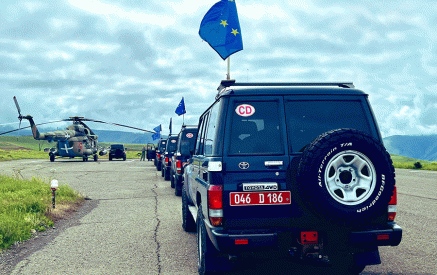The interlocutor of “Aravot” is political scientist Andrias Ghukasyan
– Mr. Ghukasyan, Nikol Pashinyan continues to insist that no country does not recognize Artsakh as part of Azerbaijan. At his press conference, referring to self-determination, he said that Artsakh’s self-determination has always been taken into account within the territorial integrity of Azerbaijan. In this context, he cited the 1996 Lisbon Summit. How do you rate these statements?
– Artsakh’s right to self-determination was mentioned for the first time in the political domain in 1920, in the context of issues concerning Artsakh between the First Republic of Armenia and Bolshevik Russia. And it is recorded that the status of Artsakh should be decided by the people living there. In the future, the basis of the decision to create the Nagorno- Karabakh Autonomous Oblast is also Artsakh’s right to self-determination. In other words, the decision to develop an autonomous region within Azerbaijan also refers to the right to self-determination. The law of the Soviet Union also records that the peoples of the autonomous regions (oblast) within the USSR retain the right to self-determination. In other words, the issue of self-determination of Artsakh is not a matter invented out of thin air, it has a historical origin, and 56 states, including Azerbaijan, have recognized the dispute with Artsakh.
In 1992, 56 OSCE states accepted that the OSCE should decide the status of Artsakh because Armenia and Azerbaijan jointly applied to the OSCE with the expectation that the OSCE would determine the status of Artsakh. And the OSCE has chosen 11 states from its composition, to whom it has given a mandate to determine the status of Artsakh. Apart from Armenia and Azerbaijan, they are the three co-chairing states, as well as Germany, Italy, Sweden, Finland, Turkey, and Belarus. In other words, 56 states, including Azerbaijan, have recognized a dispute regarding the territory of Artsakh. And the recognition of Azerbaijan’s independence, the recognition of legal equality with other states, Azerbaijan’s accession to international documents, the UN Charter, and the OSCE were conditioned by the fact that Azerbaijan, in turn, accepted that there is a dispute, the dispute concerns the issue of self-determination.
Read also
The question is: does Artsakh have the right to free self-determination, or is this right to self-determination limited in any way, and the possibility of creating an independent state or uniting with any other state is excluded? The superpowers answered that question in 2007. And since 2007, the superpowers have accepted that the people of Artsakh have the right to free self-determination. The right to self-determination cannot be limited by anything. It is based on many precedents, legal decisions of international relations, including the International Court of Justice, and political reality.
Let me address the question of who recognized Artsakh as part of Azerbaijan. As I said, the 56 OSCE states recognized a dispute that Artsakh is a disputed territory, the status of which should be decided by the OSCE. In 2008, in response to the decision of the superpowers to recognize Artsakh’s right to free self-determination, that is, the resolution expressed in the “Madrid Principles,” Ilham Aliyev initiated a resolution. And in February 2008, that resolution was put to a vote at the UN General Assembly. The main idea of the resolution was that Artsakh does not have the right to free self-determination; it can have a high autonomy status within Azerbaijan. Apart from Azerbaijan, 36 countries voted in favor of that resolution. Only 36 of the 190 United Nations member states at that time voted in favor. They were the GUAM states – Georgia, Ukraine, Azerbaijan, and Moldova, the states of the Islamic League except for Iran and Serbia. In other words, these states recognized Azerbaijan’s sovereignty over the people of Artsakh without the consent of the people of Artsakh. That resolution was adopted because only ten states voted against it; all the superpowers voted against it: the USA, France, and Russia. In February 2008, it was Armenia’s most severe diplomatic defeat, but nobody talks about it today.
They talk about everything, they criticize Vardan Oskanian for what should not be criticized, but they avoid the question of why RA didn’t use its diplomatic resources in 2008 to prevent that resolution from passing. Another observation about the right to self-determination: after World War II, there were about 60 states on the planet. Today there are 192 states. In other words, more than 130 states were created based on the right of self-determination. It is an internationally recognized process, resulting in 192 UN member states and several recognized or partially recognized states that are not members of the UN.
And to make such cheap manipulations by Nikol Pashinyan that the right to self-determination is something written on ice, that the right to self-determination of Artsakh is limited, is all a lie. And the current question is: why does Nikol Pashinyan lie? What makes him lie? In 2007, the USA, France, and Russia came to a consensus that the Artsakh problem should be settled on the basis of Artsakh free self-determination. And the decision of the International Court in the case of Western Sahara was cited as a basis, which was indicated as a precedent in the first version of the “Madrid Principles.” And in the court’s decision, the doctrine of international law regarding the right to self-determination is formulated. In general, the international practice is as follows: if there are disputes, the correct approach is to settle them by allowing people to determine their status freely.
– You say that the superpowers have accepted that the issue of Artsakh should be settled on the basis of the right to free self-determination. Is the policy of the superpowers in line with this today? For example, there are statements from the USA, Europe, and Russia, according to which they recognize the territorial integrity of Azerbaijan, including Artsakh.
– Those states with a democratically elected government that represents that people and ensures the full realization of human rights in the territory of the given state have the right to territorial integrity. Other states are obliged to respect that state’s right to territorial integrity, which means that no state has the right to attack that state, to occupy by force any part of its territory, to assist in the disintegration of that state militarily, or to form rebellions. That is the content of the right to respect territorial integrity. When the USA or France say that they recognize Azerbaijan’s right to territorial integrity, they mean that, except for the controversial issue of Artsakh, these countries do not intend to attack Azerbaijan; they do not want to support the formation of some armed uprisings in Azerbaijan.
I believe the Republic of Armenia must recognize that no government in Azerbaijan will represent the entire people. In other words, today’s government of Azerbaijan does not represent Artsakh. In other words, the fact that Artsakh is a disputed territory within Azerbaijan does not mean that Armenia is limited in providing military assistance to Artsakh. And Armenia has never been criticized by the UN or the OSCE for providing military aid to Artsakh. There was no international resolution where Armenia would be condemned for giving military assistance to Artsakh.
The international community has recorded that the adjacent regions of the former Autonomous Oblast of Nagorno- Karabakh cannot enter within the borders of Artsakh and that the right of self-determination of Artsakh can be within the boundaries it had in 1988. That is the approach of the United Nations, the four resolutions of the United Nations are about it, and the borders of Artsakh are the borders of the 1988 Nagorno- Karabakh Autonomous Oblast. Artsakh cannot occupy other territories; the occupation by force will not be recognized as legal. The problem of the Armenian political thought was how to come to terms with that reality or not because for many years, there was that discourse: “liberated territories,” “occupied territories,” or…? From 1992 until today, Azerbaijan is the party that tries to solve the Artsakh issue by force. Moreover, that state does not hide it; people in Azerbaijan imagine that controversial topics can be resolved by force.
Roza HOVHANNISYAN

